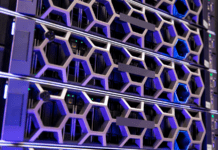Extending its lead in non-stop network attached storage (NAS) data access, Rainfinity recently unveiled an updated version of its RainStorage(TM) appliance that further simplifies NAS data management operations while ensuring continuous data access. RainStorage v1.3 introduces advanced network spanning and clustering capabilities that allow storage administrators to more easily manage NAS filers at any location and provide continuous availability during NAS data moves.
Network spanning greatly simplifies data moves among NAS filers located virtually anywhere in the enterprise — regardless of network, network segment or physical location — giving NAS administrators flexibility to eliminate costly data access disruptions and complex, time-consuming coordination efforts. A single RainStorage appliance or cluster in the data center, for example, can perform all data migration, volume expansion, capacity management, load balancing, file server consolidation and other storage management duties across NAS filers anywhere in the organization quickly and easily, while ensuring continuous data access and the highest level of data integrity and reliability.
“RainStorage now makes it easy for storage administrators to move data among NAS filers on different network segments, or even different networks, while ensuring uninterrupted data access,” said Jack Norris, vice president of marketing at Rainfinity. “RainStorage greatly simplifies and improves the efficiency of storage management tasks by fundamentally changing the way NAS systems are managed.”
RainStorage is the first fully clustered appliance that simplifies NAS management tasks by eliminating data access disruptions. NAS administrators can configure RainStorage in a high-availability, two-appliance cluster to ensure business continuity during both planned and unplanned downtime. Should one RainStorage appliance fail at any time during a data move, it will transparently fail over to the second, which instantly takes over to complete whatever operation was in progress while ensuring continuous data access to users and applications. As a result, critical financial applications, lengthy engineering simulations and renderings, database operations and other NAS-intensive processes can proceed uninterrupted during any NAS filer management task.
“Storage administrators have always struggled to find an efficient way to manage their NAS environment. RainStorage directly addresses this issue by simplifying storage management, and eliminating end-user disruptions,” said Dianne McAdam, senior analyst and partner of Data Mobility Group, a strategic market research and advisory firm focused on the storage industry. “With RainStorage, administrators can perform storage management tasks during prime time without interrupting clients or applications.”
The breakthrough RainStorage appliance works transparently to provide data movement across filers without interrupting data access from clients or servers, and can be installed and launched in about an hour without data integrity or access risk. Because data access is not interrupted, storage administration can occur on a continuous basis with more frequent storage optimization, and new NAS devices can be deployed with less effort and no impact on file availability.
Press Release text courtesy of Rainfinity.
Back to Enterprise Storage Forum





